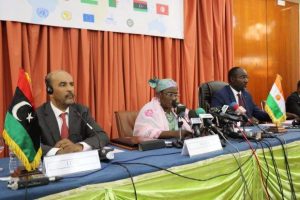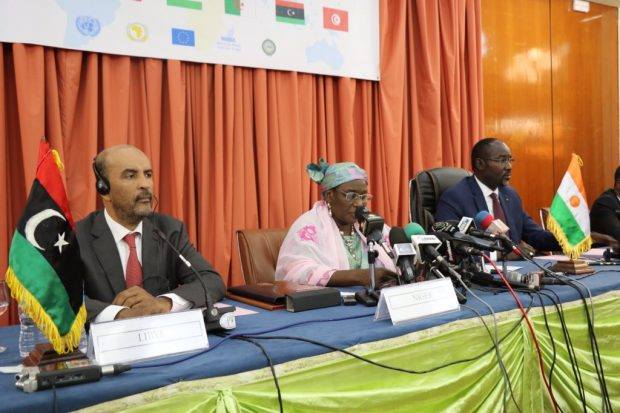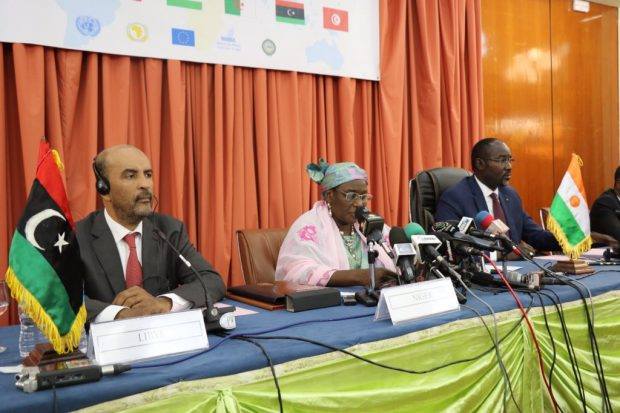By Libya Herald reporter.

Tunis, 20 October 2016:
Libya’s six neighbouring states have called for Libyan funds frozen in banks outside the country to be released so that they can be used to help the Libyan people during the current economic crisis.
Ministers from Libya’s six neighbours were gathered yesterday in Niger’s capital Niamey for their latest round of discussions on the country. Also attending were UN special envoy Martin Kobler and Presidency Council member Musa Koni.
Rejecting outside interference in Libya, the meeting, in its final statement, also the neighbours’ firm support for the Presidency Council under Faiez Serraj and for the Libyan Political Agreement as the only solution that would result in genuine national reconciliation. This later, the statement said, would come only through inclusive dialogue. To help further this, the neighbours called for a grand meeting of all the parties to the various conflicts in Libya, saying that it should be held either in Libya or in one of the neighbouring states.
Although Kobler had warned minsters at the meeting that Libya was at a critical stage, Koni said that the Presidency Council was developing three fundamental blocks to stabilise the country: national reconciliation, security and the economy. National reconciliation, he said at a press conference after the main meeting, meant including all sides in the new government.
He added that that Libya considered the support and cooperation from the six countries on its borders to be “of the highest importance”.
Taking their cue from Kobler and expressing deep concern at the deteriorating security situation, the neighbouring states also requested the international community to increase aid so as improve people’s living conditions.
While welcoming the progress made in the fight against terrorists in Libya, they also reiterated the view that their own countries’ security and stability were directly linked to those of Libya.
Koni, though, pointed out that terrorists were not just from Libya; they were everywhere and every country was their target. Libya and its neighbours had to work together to combat the threat, he said.
Whether with this in mind or believing that they had to take action to protect themselves from a fall-out from Libya, they called for a panel of experts to be set up to advise them ahead of their next meeting of all the potential security consequences of the Libyan crisis.
The next meeting is to be in Cairo.










